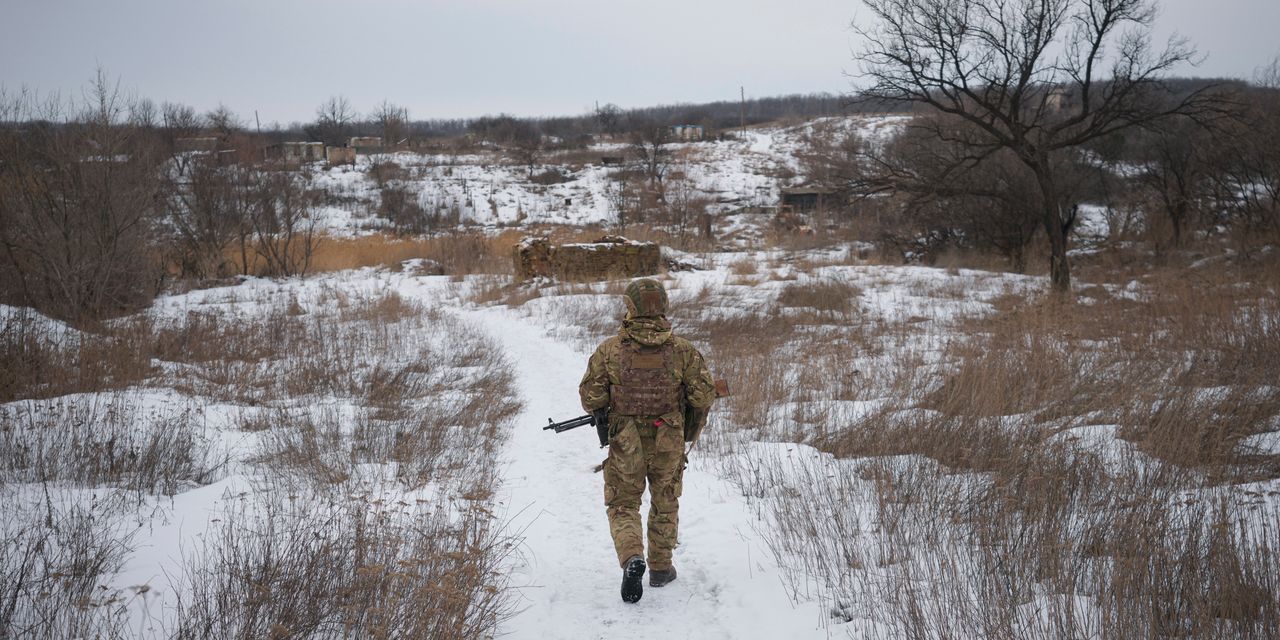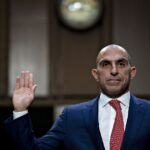
Russia’s annexation of Crimea in 2014 was an inflection point for globalization. The economic integration between east and west that began with the fall of the Berlin Wall in 1989 started to unravel.
That process will accelerate dramatically if Russia invades Ukraine and is met with punishing sanctions by the West. The resulting rupture would effectively leave Russia and China in their own economic bloc and the Western market-based democracies in another. It’s too soon to predict who wins this new economic Cold War, but not too soon to say that Russia will lose.
The end of the first Cold War transformed Russia’s economy in two ways: Markets replaced central planning, and Western trade, investment and know-how flooded in. To be sure, the benefits took a long time to materialize. The transition was marred by a depression at the outset, privatization that left the economy’s crown jewels in the hands of oligarchs, and catastrophic devaluation and default in 1998.
But in the aftermath, a recognizable market economy emerged. Before 1999, Western investment usually went into stocks, bonds and other paper assets. From 1999 onward, direct investment into businesses surged.
Sergei Guriev, an economist and former adviser to the Russian government now at Sciences Po university in France, said the impact was especially profound in services. Swedish furniture retailer IKEA, for example, helped to create a Russian consumer goods industry and invigorate homegrown competitors such as Magnit and X5 Retail Group, which now operate Western-style hypermarkets across the country.
An abundance of engineers and mathematicians combined with access to Western know-how gave birth to several world-class technology companies such as Kaspersky Lab in cybersecurity. Though Google and Facebook are allowed to operate in Russia—unlike in China—the market share battle was won by homegrown startups Yandex in search, and VKontakte in social media. Private Russian banks became relatively proficient in digital services and payments. Meanwhile, high commodity prices in the 2000s enabled Russian President Vladimir Putin to restore discipline to fiscal, monetary and currency policies while financing social payments that kept him popular. Russia had completed the “long and treacherous path from complete autarky as the Soviet Union,” said Elina Ribakova, a Latvian-born economist now with the Institute of International Finance in Washington, D.C.
Then it hit headwinds. One, said Ms. Ribakova, was the “resource curse.” The ease of making money from energy and minerals starved other industries of capital and kept the Russian currency too high for manufacturing to be competitive. Then starting with the breakup of private oil company Yukos and imprisonment of its chief executive, Mr. Putin signaled that henceforth he and his inner circle, not entrepreneurs, would control the fruits of economic progress.
Western investment slowed after the global financial crisis and Russia’s invasion of Georgia in 2008, bounced back, then collapsed after Russia’s annexation of Crimea in 2014. The resulting sanctions were “very, very costly for Russian economic development,” Sciences Po’s Mr. Guriev said. They “undermined further development of knowledge-based sectors. If you’re an IT company or a bank who wants to expand beyond Russia, you should forget about this. A Russian address for your headquarters is toxic to investors, customers, partners.” Indeed, many of Russia’s leading private companies are domiciled elsewhere. VKontakte’s founder has left the country. In 2017, the U.S. banned Kaspersky software from federal government computers as a security risk. The company has said there was no evidence of that.
If Russia invades the rest of Ukraine, the sanctions the U.S. and its allies are now considering, which could include limiting its banks’ access to the dollar and cutting off its access to some Western technology, would accelerate the decoupling of east and west that began in 2014.
After the Cold War, economic logic made Russia Europe’s largest supplier of gas and Europe Russia’s biggest customer. Both now see that mutual dependence as a strategic liability. In the short run, a loss of Russian gas would be highly damaging to Europe, which lacks the infrastructure or suppliers to completely replace it with liquefied natural gas. Still, surging LNG imports from the U.S. have proven to be a safety valve. “No one would have thought six months ago Europe could get…two times as much LNG as from the Russians,” said Georg Zachmann, an energy expert at Bruegel, a Brussels-based think tank. By the 2030s, he said, decarbonization will significantly reduce European gas consumption. Meanwhile, Russia, seeking to reduce its dependence on Europe, opened a pipeline from Siberia to China in 2019 and is pushing for a second.
SHARE YOUR THOUGHTS
What ripple effects do you see coming from the clash over Ukraine? Join the conversation below.
Mr. Putin and Chinese leader Xi Jinping used their meeting last week to celebrate their countries’ deepening ties. Whatever the strategic advantage, though, an economic bloc with China will be of doubtful economic benefit to Russia. It will likely deepen its dependence on natural resources at the expense of knowledge-intensive sectors. Ruben Enikolopov, economist at the New Economic School in Moscow, said Russian companies that aren’t selling something China lacks, such as gas or resources, can’t expect easy access to China’s market: “In China, Chinese companies will always get preferential treatment. It’s just the way they do things.” As opportunities dry up for Russian technology entrepreneurs, who often trained at American universities, he fears an exodus of talent.
Ample foreign exchange reserves, a competent central bank and low government debt will insulate Russia from the worst effects of sanctions. And a new Cold War doesn’t mean a return to central planning. Russia is, and will remain, a market economy, albeit one heavily distorted by an intrusive state sector, Mr. Enikolopov said. But, he said, it’s one destined to fall further behind as the rest of the world grows.
Write to Greg Ip at [email protected]
Copyright ©2022 Dow Jones & Company, Inc. All Rights Reserved. 87990cbe856818d5eddac44c7b1cdeb8








